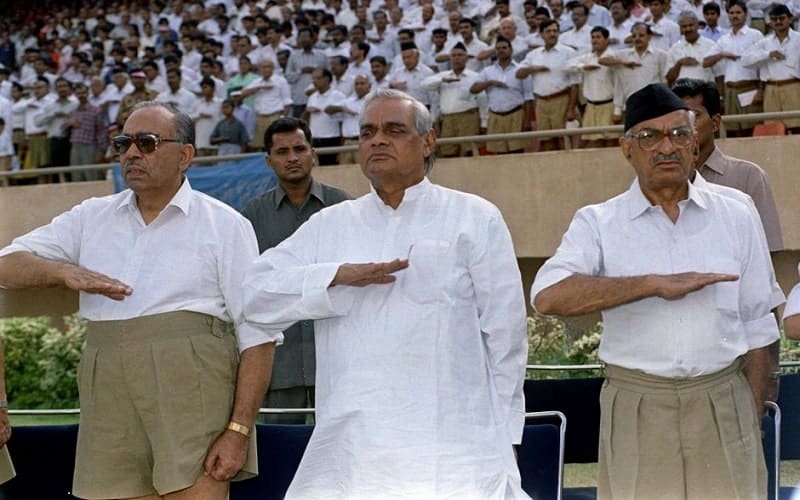Siasat.com
New Delhi: Born on December 25, 1924, Atal Bihari Vajpayee was the only son of Krishna Bihari Vajpayee, a school teacher in Gwalior Madhya Pradesh.
Education
Having completed his schooling from Saraswati Shishu Mandir, Gorkhi in Gwalior, Vajpayee acquired Bachelor of Arts (BA) in Hindi, Sanskrit and English from Victoria College in Gwalior, now called as Laxmi Bai College.
Later, the former PM of India went on to do Master of Arts (MA) in Political Science from DAV College, Kanpur.
Political kick-off
At the age of 16 years, Vajpayee became an active member of the Rashtriya Swayamsevak Sangh (RSS) in 1942.
He became the general secretary of Arya Samaj in 1944.
First term as PM lasted only 13 days
On May 16, 1996 when the then President Shankar Dayal Sharma invited BJP, Vajpayee was sworn in as the 10th Prime Minister of India. However, his premiership lasted only for 13 days as no new allies came out to support the BJP.
Second term lost by one vote
On March 19, 1988 Vajpayee was sworn in as Prime Minister for the second time. After 13 months, the his government lost the vote of confidence by one vote on April 17, 1999. This is the only government at the Centre to have lost a confidence vote.
International affairs
His tenure saw India’s second nuclear test at Pokhran on May 11, 1998. A spate of trade and other sanctions by US and other countries followed. Despite the nuclear test, Vajpayee reached out to Pakistan through the Lahore bus diplomacy in February, 1999. However, just three months later, Pakistan attacked India in May 1999, leading to the Kargil war
Completes third term
The Vajpayee-led NDA won 303 Lok Sabha seats in 1999 and he was sworn in as Prime Minister for the third time on October 13. Vajpayee again made a tryst with peace when he invited Pakistan President Pervez Musharraf- who was the Army chief when the neighbouring country had begun the Kargil war- for a summit at Agra in July 2001. The summit ended in failure.
Vajpayee did not have very cordial relations with Modi and had asked him to follow rajdharma in the wake of the Gujarat riots of 2002. He wanted Modi to quit as chief minister but the former survived as LK Advani backed him.
He was seen as a secular, moderate leader of the BJP. Distancing himself from Advani’s 1991 rath yatra, Vajpayee did not participate in demolition of Babri mosque in Ayodhya.
“The mosque should not have been destroyed”: Vajpayee repeated several times.

